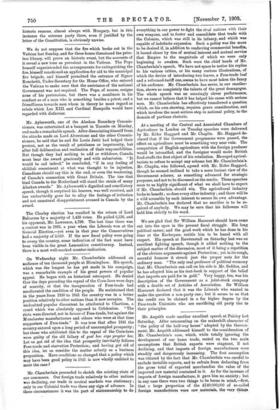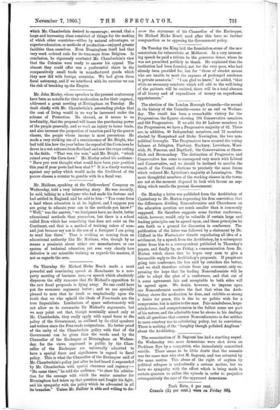Mr. Asquith made another excellent speech at Paisley last Saturday.
After commenting on the makeshift character of "the policy of the half-way house" adopted by the Govern- ment, Mr. Asquith addressed himself to the consideration of Mr. Chamberlain's case, which, while totally ignoring the development of our home trade, rested on the two main assumptions that British exports were stagnant, if not declining, and that imports of foreign manufactures were steadily and dangerously increasing. The first assumption was vitiated by the fact that Mr. Chamberlain was careful to exclude invisible exports, and to refrain from deducting from the gross total of exported merchandise the value of the imported raw material contained in it. As for the increase of imports of foreign manufacture, it gave him no anxiety;. but in any case there were two things to be borne in mind.--first; that a large proportion of the ;149,000,000 of so-called foreign manufactures were raw , materials, the very thhige,
which. Mr; Chamberlain desired to encourage; second, that a large and increasing class consisted of things for the making of which other countries—either by natural advantages, or superior education, or methods of production—enjoyed greater facilities than ourselves. Even Birmingham itself had that very week ordered rails for its tramways from Belgium. In conclusion, he vigorously combated Mr. Chamberlain's view that the Colonies were ready to answer his appeal. The utmost they could offer was a preferential share in the comparatively small trade in manufactured goods which they now did with foreign countries. We had given them fiscal autonomy, and if we interfered with its exercise we ran the risk of breaking up the Empire.































































 Previous page
Previous page